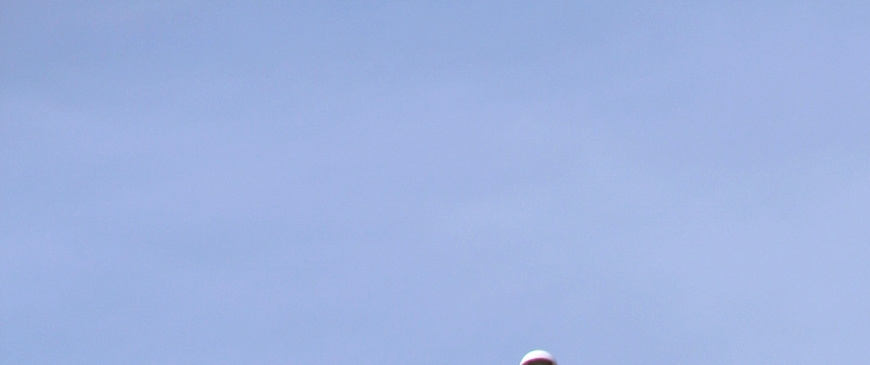
Europe must bring Ukraine into the fold
In a spectacular case of bad timing, Ukraine’s government all but collapsed last week. President Viktor Yushchenko withdrew most of his deputies from the ruling coalition with Yulia Tymoshenko, the prime minister. Unless the two reconcile or the prime minister finds new coalition partners soon, Ukraine may have to hold new elections – the third in two years.
This would be destabilising under normal circumstances but times are anything but normal. The war in Georgia has led to fears that Ukraine may be next on Russia’s hit list. Like Georgia, Ukraine wants to join the European Union and Nato, and it has Russian troops as well as a sizeable Russian minority on its territory. To face the risks, the Ukrainians need reassurance that Europe will not consign them to a Russian sphere of influence. The EU seemed ready to give just such signal at tomorrow’s Ukraine-EU summit, by giving Ukraine a membership “perspective”. But after the government crisis broke out in Kiev, the opposition in the EU to Ukraine’s case hardened.
If the EU fails to move Ukraine closer to membership, it would make a mistake on par with the foolishness of Kiev’s politicians. To preserve a safe and stable eastern border – which the EU has taken for granted until the Georgia war proved it wrong – EU member states need to try harder to anchor their eastern neighbours to the EU. Ukraine’s political scene, too, would become more stable if the country’s leadership had a clear EU membership perspective before it.
For years, the EU based its eastern strategy on a simple premise. With sufficient time, EU money and friendly nudging, the entire neighbourhood from Ukraine to Azerbaijan will become like Europe: liberal, democratic, international law-abiding, peaceful. That theory turned to dust on August 7 when Russian tanks rolled into Georgia. Russia did not start the war but Moscow made war probable by encouraging Georgia’s separatist provinces to secede. Moscow did so to keep Georgia from joining Nato. From now on, the EU should assume that Russia will oppose – by force, if necessary – the expansion of western influence into eastern Europe.
The EU should respond in two ways. First, it should take an active role in defusing potential conflicts in countries separating it from Russia. Ukraine, with a population of 46m the largest of the EU’s eastern neighbours, should be the immediate focus.
The country fears that if and when it moves closer to the west, Russia will use its military presence in Crimea (the Black Sea fleet in Sevastopol), and the pro-Moscow leanings of the local population, to break up Ukraine. This may be what Vladimir Putin, the Russian prime minister, had in mind when he said in April 2008 that Ukraine’s “fragility” would cause it to “disintegrate” upon entering Nato.
Europe can prevent such a scenario. The EU should finance infrastructure projects to turn Sevastopol into a commercial hub after the Russian fleet leaves. If the local population sees no alternative to income from the Russian fleet’s presence, they will be easy prey to Russian scaremongering.
Second, Europe should speed up its efforts to integrate Ukraine and other eastern neighbours into the EU. One of the lessons of the war is that the EU needs tools to discourage its neighbours from acting recklessly. The EU can moderate the behaviour of neighbours, such as Georgia, by emphasising that destabilising actions will undermine prospects for EU (and Nato) membership. But, as things stand, this threat is not credible. So many EU governments oppose further enlargement that Ukraine does not think that the EU is seriously planning to accept it.
At the summit, the EU should begin to restore its influence in eastern Europe by putting Ukraine on a track to accession. The EU should call its new partnership deal with Ukraine an “association agreement” – this would echo past arrangements with the now-new member states of central Europe. The EU should also say that it wants closer relations with Ukraine. This would tell the Ukrainians that they are not destined to be eternal neighbours, and will be welcome to join the EU once they meet the accession criteria.
Some EU countries will oppose these suggestions because they worry that Ukrainian workers will flood their job markets. But Ukraine will not join for many more years, and its workers may not be free to work in the EU for many years after accession. By that time Ukraine’s own economy, already growing handsomely, will absorb most jobs.
Other Europeans worry that Russia will view EU overtures to Ukraine as provocative.
They should take a more strategic view. The rationale for closer integration with Ukraine is not anti-Russian; it is to stabilise the EU’s borders. And the EU should be willing to run the risk of annoying Moscow when its own vital interests are at stake.
